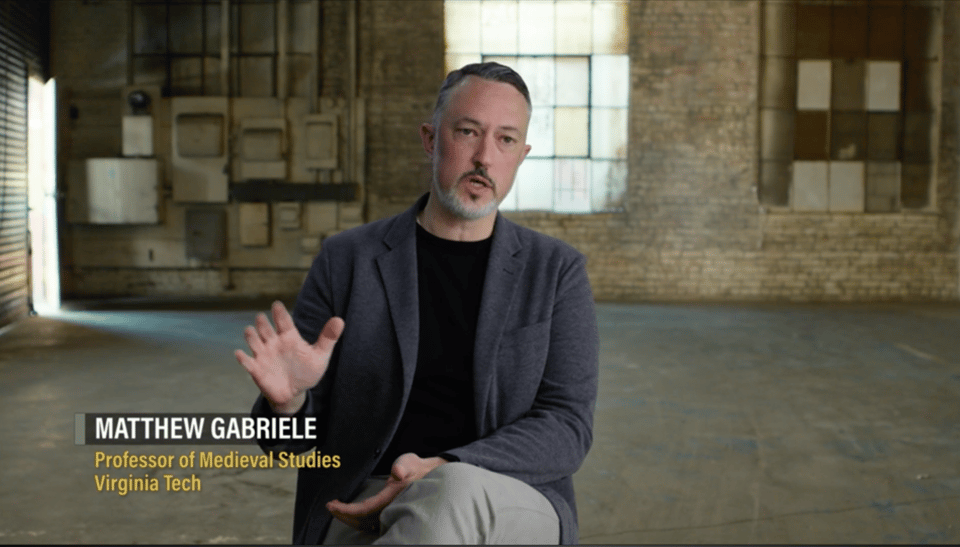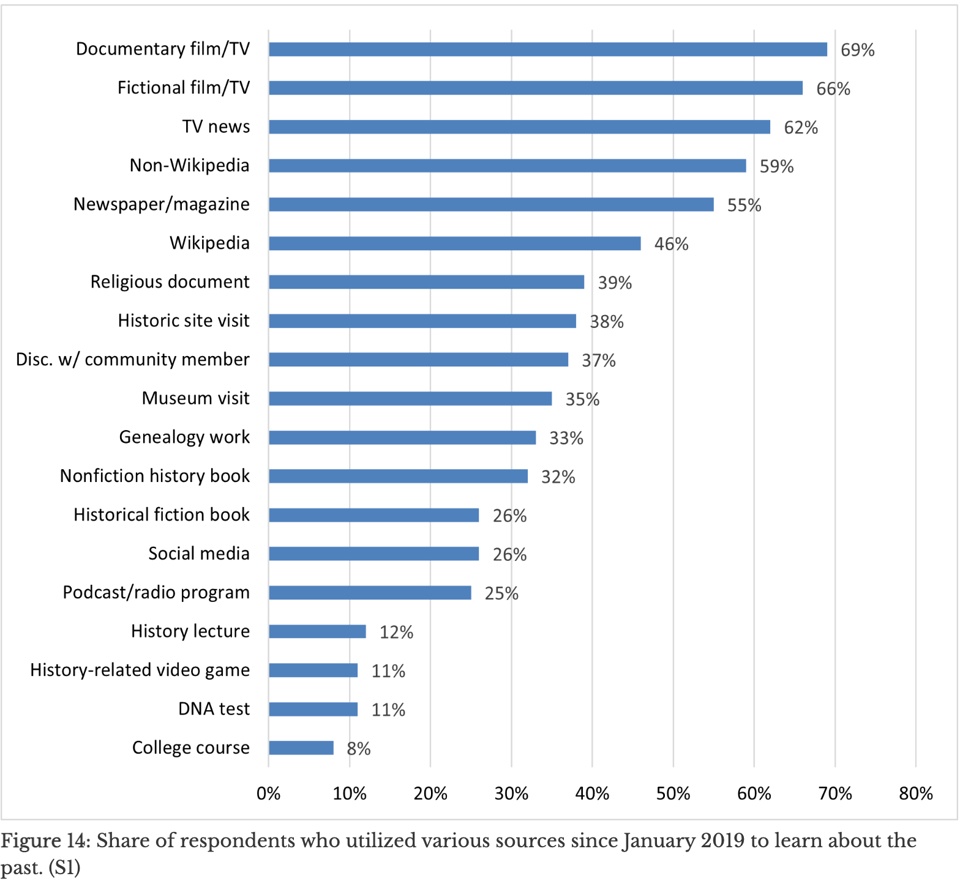The Lost Treasure of the Knights Templar
Some thoughts on TV history and expertise (and the Templars)

Modern Medieval
by David M. Perry and Matthew Gabriele
By Matt Gabriele
Yesterday (February 12, 2024), I was on The History Channel.
Specifically, I was a talking head on History's Greatest Mysteries (hosted by Laurence Fishburne - no we didn't get to meet), with the topic of that episode being "The Lost Treasure of the Knights Templar." If you're interested, you can watch here.

Though I've done plenty of interviews before, and even hosted a webcast during the pandemic lockdown called "Drinking with Historians," it was the first time I'd done something for TV. And this experience, in its logistics, was far different from any other form of media I've done.
Some of this is fuzzy because I filmed quite a while ago (the episode was delayed because of the writers' strike), but the first stage was a pre-screening when I met on Zoom with a producer and they went over the scope of the episode and what kinds of questions they'd like me to talk about. At that time, they recorded a brief sample of me actually talking about the topic.
From there, I was selected among the candidates and flown to LA for a taping. I was not taken to an abandoned warehouse but rather to a studio, tested for covid, then brought into a room with a green screen and sat on an old dining table chair. Then, with a whole lot of people around to man the audio and video, I was asked a series of questions.
The producer who chatted with me in the studio was great and I never felt that I had to be dishonest or give in to the conspiracy stuff (not once did I say "aliens"). Mostly, they were open-ended questions about the Templars and about the various "theories" about what happened to the Templars after their suppression in 1307.
And this brings me to the real point of this post - who appears on these types of shows and why that matters. Take a look at this graph.

Part of a larger report done by the American Historical Association in 2021, the graph above shows how most people learn about the past. As you can clearly see, it ain't from academics (we top out, maybe, at 32% with "nonfiction history book"; it's almost all from video/ TV. This means, I think, it's critical that experts are in these spaces because (a) there's a hunger for these things, and (b) if we aren't there, someone else will be.
For example, in my show on the Templars, I was the only professional medievalist. There were other serious scholars on there but they were all Americanists. So, let me say that again, I was the only professional medievalist on a show about the Templars. That's... not great.
Now, there are structural issues against us being on these shows. Producers sometimes think they know what they want and they select against professionals, but that doesn't always happen and we need to keep trying. With the ongoing crisis in how history - and medieval history specifically - is perceived, the only way forward is expanding our publics by meeting them where they are.
****
PS -- feel free to ask any questions about the Templars you like in the comments.
-
lol go for it!
-
Dear Professor, extended family members are obsessed w/ being descended from Templars because our namesake village was briefly home to a Templar chapel (base? church? safety deposit box?). Do I tell them about voluntary vows of celibacy?
-
What are your recommendations for actual Nonfiction History Books on the Templars?
-
No aliens? Not one? Disappointing, sir! 😂
I do have a wonderful inage now of producers kidnapping medievalists, dragging them to warehouses, and forcing them to talk.
But I suppoooooose I'll still go find the episode even though there are neither aliens nor kidnapping. Sigh.
Aside from that though, I have one question. What is your favourite Templar conspiracy theory? There's more than I can count, and I have long found conspiracy theories (and the people who invent/believe them) endlessly fascinating, so now I must ask 😁

Add a comment: